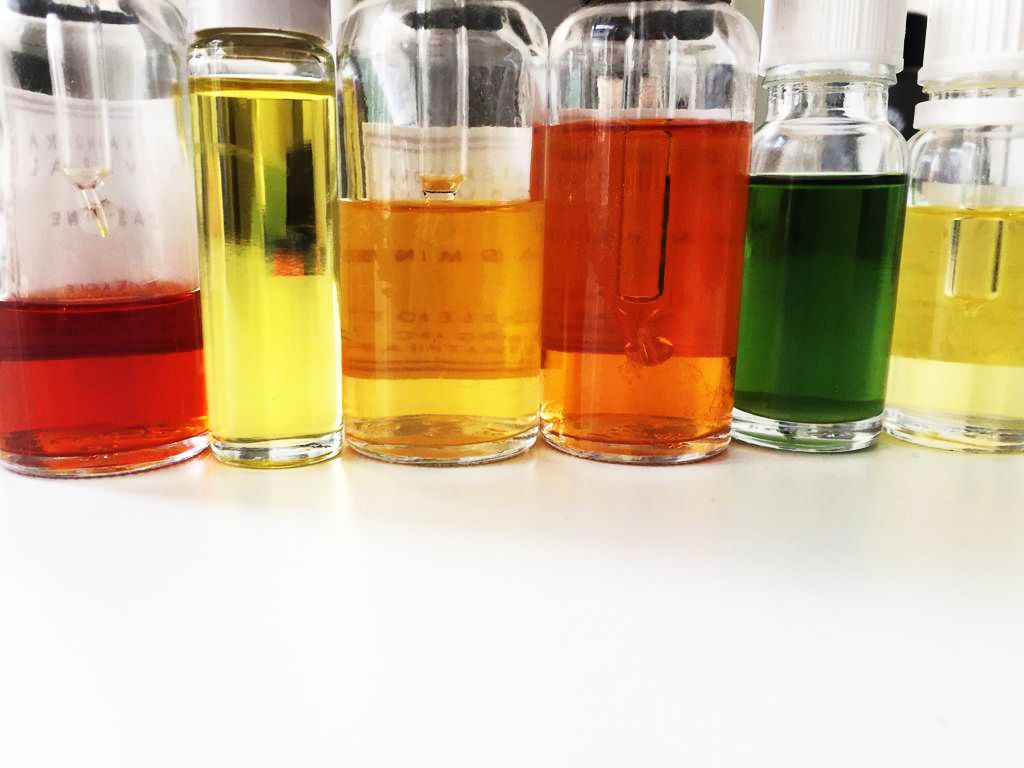Alexandra’s Crash Course on Oil
Posted on

Do all skin types suit oil?
Some people believe their skin will breakout at the sight of a face oil, for the most part they are right, here is why:
Reason 1 They may be using an oil that is not actually an oil.
Reason 2 The oil they are using is unsuitable for their skin, it may be too fatty.
Reason 3 Their skin truly cannot cope with oil.
Reason 1
Not all oils on the market should be called oil, they are products cashing in on the known oil benefits. The products I do not consider to be true oils are:
Synthetic polymers – They are essentially plastic
Mineral oils – Petrochemicals
Processed Oils – The oil’s various components are separated and then processed in a multitude of ways, the end result is something that does not have the same properties as the original oil but ends up on advertising of the product with the same name. This is done for getting a longer shelf life and of course it is a much cheaper ingredient as it can be extracted from inferior produce. You will find them in almost all your skincare products under the name of ‘Caprylic’ or ‘Capric Triglyceride’.
When it comes to oil, the only oils that should be used on the skin should be pure vegetable oils.
Reason 2
For those whose skin loves oil, life is a wonderful journey of oil discovery. With so many skin health benefits on offer from vegetable oils, we can pick and choose depending on what we are aiming to address and improve. Skin feeling a little dry? A little jojoba will fix that. Been out in the sun too much? Avocado oil will replenish and soften the skin in no time.
However, for those with the tendency to breakout, life is not so easy. Even pure vegetable oils need to be carefully considered, to ensure no adverse reactions.
We know that good bacteria thrive on oxygen whilst harmful skin bacteria feed on, amongst other things, rancid oil. Bearing that is mind, bringing oxygenated blood to the skin is therefore a good thing (this can be done through exercise and face massage) and ensuring oil does not oxidize on the skin is also smart.
There are oils with very low oxidizing qualities that also bring great benefits to problem skin, oils rich in linoleic acid and various natural vitamins. A good example is Pomegranate seed oil.
To avoid any oil from going rancid on the skin all Soveral face oils are reinforced with naturally effective antioxidants.
Reason 3
Acne prone skin is high in oleic acid, which is an Omega 9, and the skin over produces oleic acid to make up for the lack of linoleic acid. This extra production of oil by the skin makes the sebaceous glands enlarged and often ends up in pores being clogged and inflammation. The trapped oil inside the pores oxidizes, making it a perfect food for the bad bacteria to feed on.
The skin needs linoleic and alpha-linolenic acids (Omega 6 and Omega 3) to properly function and build its natural barrier against bacterial invaders.
The problem is that all oils that contain the beneficial acids also contain oleic acid, so what can we do about it?
Jojoba is not an oil but a liquid wax that has a very similar composition of that of sebum. Because of that similarity it is recognised in the skin as sebum, the bonus here is that another great benefit of Jojoba is that it is very stable, it does not easily oxidize, so it will not become a food source for the harmful bacteria. Jojoba does contain a very small amount of oleic acid, but this is in balance with how much the skin should contain. Its sebum-like structure allows this oil to blend with the sebum inside the pore, thus dissolving it and this is a great way to get antibacterial and anti-inflammatory properties of essential oils into the pores. Simply dilute acne fighting essential oils into jojoba and either use as a skin cleanser or as a moisturising face oil. Take a look at the blending instructions on the Soveral website under Aromatherapy.
For those with very acne prone skin, you may want to remove the jojoba oil after massaging the skin with a warm damp cloth. Do this a couple of times per week to get the skin gradually used to the skin. Once you feel confident your skin is not reacting, you may try leaving the oil on the skin but removing excess oil with a tissue once the face massage is over.
Shop the blog:
Midnight oil face oil
Forever Young Face oil
Jojoba Oil
Avocado Oil
Add a comment: